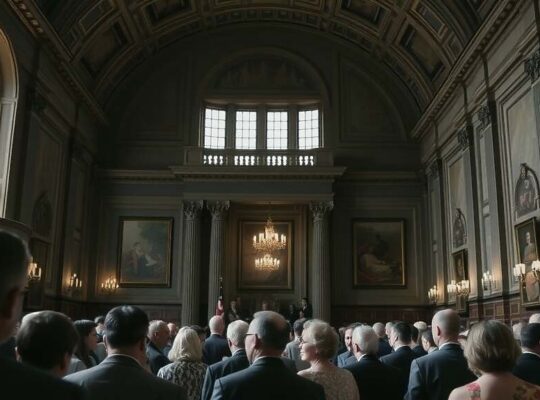Germany’s parliamentary president, Julia Klöckner, has responded to recent criticism of her leadership, emphasizing the importance of respectful discourse and adherence to parliamentary procedure. In an interview, Klöckner stated that freedom of expression encompasses the right to hold differing opinions and expressed concern over what she perceives as increasingly polarized rhetoric within Germany’s centrist political landscape.
The comments come after weeks of debate surrounding several decisions made under her stewardship. These include a strict ban on political attire and badges within the Bundestag, the refusal to fly the rainbow flag over the Reichstag building during the Christopher Street Day celebrations and a comparison she drew between the news portals “Nius” and “taz”. Outgoing Vice Chancellor Robert Habeck recently criticized Klöckner, suggesting she had consistently fostered division rather than unity.
Klöckner described a growing tendency towards “bloc formations” both within society and the Bundestag. Regarding her earlier comments on perceived similarities between “taz” and “Nius” she clarified that she did not intend to draw a direct equivalence, but rather to highlight the potential dangers of increasing polarization within the media landscape. She advocated for robust debate and a willingness to accept criticism, but stressed that such exchanges should be grounded in mutual respect.
The parliamentary president identified a pattern of escalating rhetoric from both the far-left and far-right fringes of the political spectrum, representing approximately 35% of parliamentary seats combined. She stated that the Bundestag’s presiding officers have agreed upon a consistent, albeit strict, but fair approach to maintaining order.
Klöckner noted that twelve of the thirteen formal reprimands issued to date have been directed toward members of the Alternative for Germany (AfD) party. She reaffirmed the importance of upholding the dignity of the parliamentary chamber, emphasizing that debate should be conducted through reasoned argument rather than displays of political symbolism through clothing or other means. She argued that consistent application of these rules is crucial to avoid perceptions of arbitrariness.












